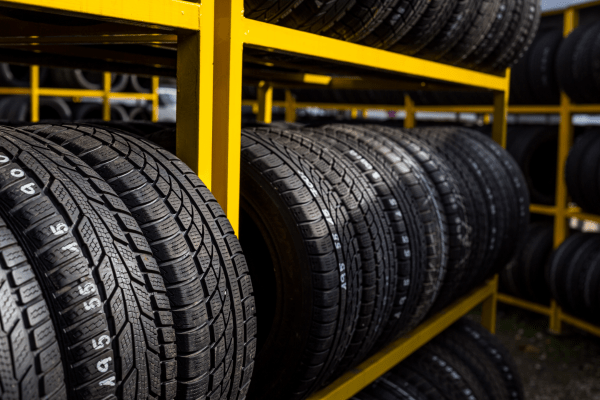
Choosing the right set of tires for your vehicle is a decision that can significantly impact your driving experience, safety, and performance. When it comes to deciding between all-season tires and summer tires, there are several factors to consider. Each type of tire has its own set of advantages and limitations, making it essential to make an informed choice. In this article, we’ll explore the differences between all-season and summer tires to help you decide which is the best fit for your driving needs.
All-Season Tires: Versatility and Convenience
All-season tires are designed to offer a balance of performance in various weather conditions, making them a popular choice for drivers who want a set of tires that can handle a range of temperatures and road conditions. Here are some key characteristics and benefits of all-season tires:
- Versatility: As the name suggests, all-season tires are built to handle different weather conditions. They perform reasonably well in dry, wet, and light snow conditions, providing a convenient and versatile option for drivers who don’t want to change tires seasonally.
- Comfort: All-season tires often deliver a comfortable and quiet ride due to their tread design and rubber compounds. This makes them a popular choice for daily commuting and long highway trips.
- Longevity: All-season tires typically have a longer tread life compared to summer tires, making them a cost-effective option in the long run.
- Convenience: Since they can be used year-round, there’s no need to swap tires with the changing seasons, saving you time and effort.
Summer Tires: Optimal Performance in Warm Weather
Summer tires, on the other hand, are specially designed for warm weather conditions. While they excel in hot and dry conditions, they have some limitations in other weather conditions. Here are the key features and advantages of summer tires:
- Performance: Summer tires are engineered for optimal performance in warm weather. They offer superior traction, precise handling, and shorter braking distances on dry roads. If you have a high-performance or sports car, summer tires are often the preferred choice for maximum grip and agility.
- Cornering: These tires are designed to provide excellent cornering capabilities, allowing for better control and stability when taking turns at higher speeds.
- Enhanced Braking: Summer tires have advanced rubber compounds that enhance braking performance on dry surfaces, reducing the risk of accidents.
- Reduced Hydroplaning: The tread design of summer tires is optimized to disperse water efficiently, reducing the risk of hydroplaning in wet conditions.
Consider Your Local Climate and Driving Habits
When deciding between all-season and summer tires, the climate in your local area plays a significant role. Consider the following factors:
- Weather Conditions: If you live in an area with mild winters and warm summers, all-season tires may be suitable. However, in regions with extreme heat during the summer months, summer tires can provide better performance.
- Winter Considerations: If you frequently encounter heavy snow and ice, all-season tires may not be sufficient. In such cases, it’s advisable to invest in a separate set of winter tires for enhanced safety during the colder months.
- Driving Habits: Think about your typical driving habits. If you mainly commute on well-maintained roads and prioritize performance, summer tires might be a good choice. If you often encounter diverse road conditions, all-season tires offer greater versatility.
- Budget: While all-season tires are more cost-effective in the long term due to their longer tread life, summer tires might be more expensive. Consider your budget when making your choice.
A Balanced Approach: All-Season Tires with Summer Tires
If you’re in a region with distinct seasons and you’re looking for a balanced approach, consider using all-season tires for most of the year and switching to summer tires during the warm months. This approach combines the versatility of all-season tires with the performance benefits of summer tires when you need them most.
Remember that the right tire choice is crucial for your safety and driving experience. Consult your vehicle’s manual for manufacturer recommendations and consult with a tire professional to ensure you choose the right tires for your specific needs and conditions.
In conclusion, the decision between all-season and summer tires hinges on several factors, including your local climate, driving habits, and budget. All-season tires offer convenience and versatility for year-round use, while summer tires excel in warm weather conditions, providing exceptional performance and safety. In areas with distinct seasons, a combination of all-season and summer tires can offer the best of both worlds. Whatever your choice, prioritize safety and consult with experts to make an informed decision that suits your unique driving requirements.

